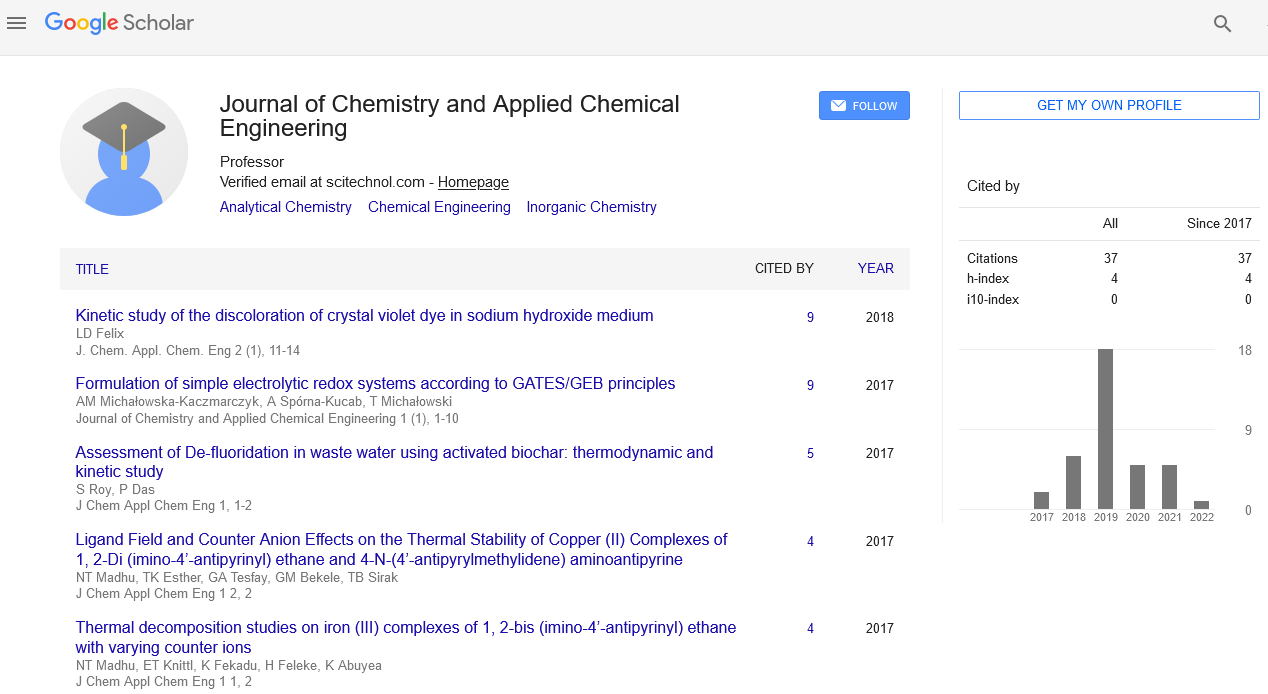The key challenge to oil and gas: Hydrogen-fuel-cell- battery hybrid vehicles
Kevin Kendall
University of Birmingham, UK
: J Chem Appl Chem Eng
Abstract
Clean, renewable energy for vehicles is a priority for air quality improvement in many cities throughout the world because transportation emissions from fossil are still rising whereas grid, domestic and industry pollution have been diminishing. Hydrogen fuel for vehicles has been a desirable option since the 1990s when California attempted to push through the ZEV (zero emission vehicles) mandate. The first hydrogen fuel cell bus was demonstrated by Ballard in that decade. Battery vehicles emerged a century earlier but did not operate satisfactorily because of high mass and low range. Now there is a competition between pure fuel cell and pure battery vehicles which can be resolved by moving to the fuel-cellbattery hybrid. This paper describes the development of these hybrid vehicles which are shown to provide several advantages over previous designs; Zero emissions, beating the ICE-battery hybrid, High energy storage in hydrogen to beat the pure battery by a factor 6, Instant high power from a compact battery, Regenerative braking energy storage in the battery and Lower overall weight and cost than other designs. A recent EU project SWARM was completed recently testing a number of these hybrid vehicles designed for driving in UK, France, Belgium and Germany. The results will be critically appraised. One substantial development described is the microcab compact city vehicle designed in 2004 and researched in detail over 15 years in the UK. The second innovation is the hybrid Ballard bus which started running in London in 2012 as part of the EU Chic project. This design has been further tested in Foshan, China. Following the 2016 Chinese government plan for new energy vehicles, bus production in Foshan has now overtaken that in the EU, USA and Japan combined. Hydrogen infrastructure requires much advance to catch up, but numbers of filling stations are now increasing rapidly in the large cities. A particular benefit in China is the large number of battery manufacturing companies which fit well into the energy storage plan for hybrid fuel cell buses. The first city to manufacture thousands of PEM-battery hybrid buses is Foshan where the Feichi (Allenbus) company has built a new factory next to a novel fuel cell production line capable of producing 500 MW of fuel cell units per year. Hundreds of these buses are running on local Foshan routes in 2019, while production of city delivery trucks has also been substantial. The results show a factor two cut in energy consumption over fossil fuel vehicles while providing zero emissions at the tailpipe.
Biography
E-mail: kevin.kendall@adelan.co.uk
 Spanish
Spanish  Chinese
Chinese  Russian
Russian  German
German  French
French  Japanese
Japanese  Portuguese
Portuguese  Hindi
Hindi 